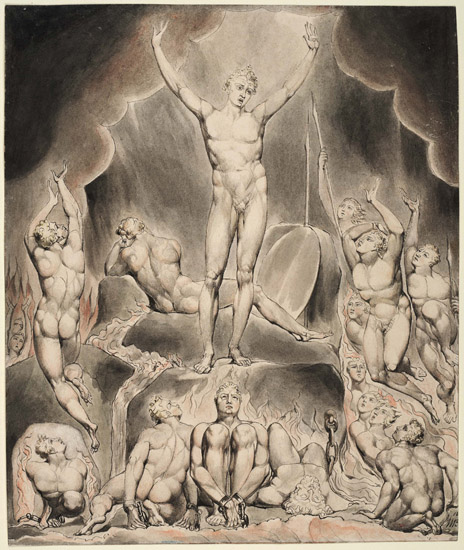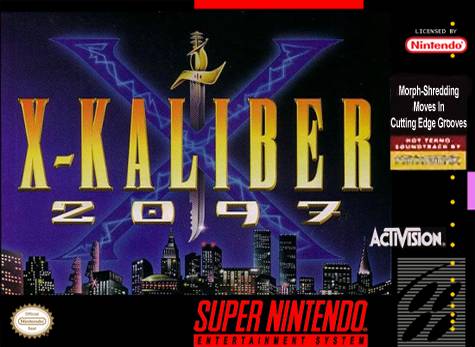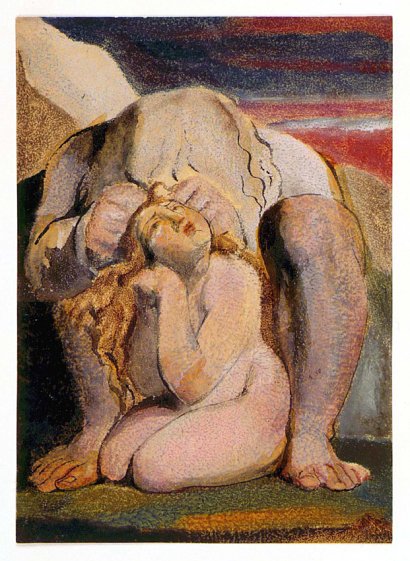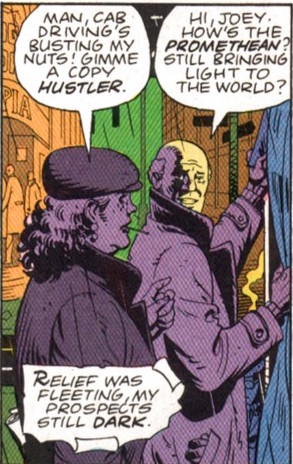“The Murderer”: Blood Oath
So this episode. This one has been a long time coming, certainly for me. Here’s an episode I’ve always heard so much about: A good, nay great Jadzia Dax episode penned by Peter Allan Fields, possibly the most consistently excellent writer in Star Trek: Deep Space Nine‘s stable. It’s a story I never experienced at the time, as I didn’t have the magazine issue where this one was written up and I didn’t, to my knowledge, see it on television before the DVD sets came out. Furthermore, this is supposed to be a kickass action story set against the backdrop of a glorious Klingon romp. If this isn’t Dax’s best story, its the one where she finally comes into her own as a character.
At least, that’s what everyone tells me. And you can, I’m sure, see where this is headed.
The first thing that strikes me about “Blood Oath” is how much it actually feels like a Ronald D. Moore story. It isn’t, obviously, nor could he have had any input on it considering he’s not on Star Trek: Deep Space Nine. But it had absolutely all of his signature beat points: Pompous, grandiose musings on death, honour and glory. Angsty, moody, broody male antiheroes who don’t get along with anybody because “no-one understands” them (at least Fields has the decency to play them as slightly comic characters, whereas Moore tends to play these types of characters alarmingly straight). A ham-handed approach to feminism that is basically saying a “strong woman” is someone who can reject femininity to prove to us she’s capable of filling the same masculine/patriarchal archetypal roles. Here it even manifests in a rather cringe-worthy game of “I can do anything the boys can do!” that lasts about two-thirds of the episode. It’s a picture-perfect example of the liberal assumption that increased opportunity to climb the pre-existing social ladder of the heierarchical status quo is tantamount to liberation, where real liberation would entail the dismantling of said ladder and probably the torching of the entire building and surrounding areas. And of course, it’s a great big Klingon love-letter epic that puts the entire rest of the show on hold so it can fawn over a bunch of trivia questions for forty minutes.
To be fair, this isn’t on Fields. Kor, Kang and Koloth were not in his original pitch, which was basically a “Let’s Do” of Akira Kurosawa’s Seven Samurai. The Klingons were apparently added at the behest of Robert Hewitt Wolfe, who is, of course, a massive Original Series fan. Fields compensates for this by writing them based not so much on their portrayals in “Errand of Mercy”, “The Trouble with Tribbles” and “Day of the Dove”, but on characters from John Sturges’ remake of Seven Samurai called The Magnificent Seven, as well as Falstaff from Henry IV, Part II. But even so, Holy Prophets is this bad: The fanwank, while not quite as overwhelmingly wanky and referential as this sort of thing tends to get, is still the number one biggest problem with “Blood Oath” and sinks the whole production for me before even the shaky grasp on feminism can.…


 The Kickstarter for Neoreaction a Basilisk will begin next week. For now, here’s another excerpt, this time after a section looking at the notion of “the red pill,” a concept Mencius Moldbug introduced to the alt-right, and claims that his blog offers readers.
The Kickstarter for Neoreaction a Basilisk will begin next week. For now, here’s another excerpt, this time after a section looking at the notion of “the red pill,” a concept Mencius Moldbug introduced to the alt-right, and claims that his blog offers readers. This wasn’t on the original list of games to be covered. Consider its inclusion something of a magickal mistake, honored as hidden intention. I cast my initial circle carelessly, and, through an accident of timing, ensconced a particular monster within the territory covered. This, then, is the consequence.
This wasn’t on the original list of games to be covered. Consider its inclusion something of a magickal mistake, honored as hidden intention. I cast my initial circle carelessly, and, through an accident of timing, ensconced a particular monster within the territory covered. This, then, is the consequence.

 Blake’s sense of doom and futility in this period is impossible to escape. He fashioned himself a prophet, yes, but his prophecies augured nothing good. Urizen’s tyranny seems inescapable, with every avenue of resistance doomed to sputter out or turn against itself. Even the grim eschatology of an unrelenting march towards doomsday would seem in some ways more optimistic than the utter despair of The Book of Urizen, which ends with a description of how “Beneath the Net of Urizen; / Perswasion was in vain; / For the ears of the inhabitants, / Were wither’d, & deafen’d, & cold; / And their eyes could not discern, / Their brethren of other cities.” The end, after all, is at least a form of escape and change. Blake, however, saw no escape or hope within his visions, writing in one of his notebooks in 1793 that “I say I shant live five years And if I live one it will be a Wonder.”…
Blake’s sense of doom and futility in this period is impossible to escape. He fashioned himself a prophet, yes, but his prophecies augured nothing good. Urizen’s tyranny seems inescapable, with every avenue of resistance doomed to sputter out or turn against itself. Even the grim eschatology of an unrelenting march towards doomsday would seem in some ways more optimistic than the utter despair of The Book of Urizen, which ends with a description of how “Beneath the Net of Urizen; / Perswasion was in vain; / For the ears of the inhabitants, / Were wither’d, & deafen’d, & cold; / And their eyes could not discern, / Their brethren of other cities.” The end, after all, is at least a form of escape and change. Blake, however, saw no escape or hope within his visions, writing in one of his notebooks in 1793 that “I say I shant live five years And if I live one it will be a Wonder.”…